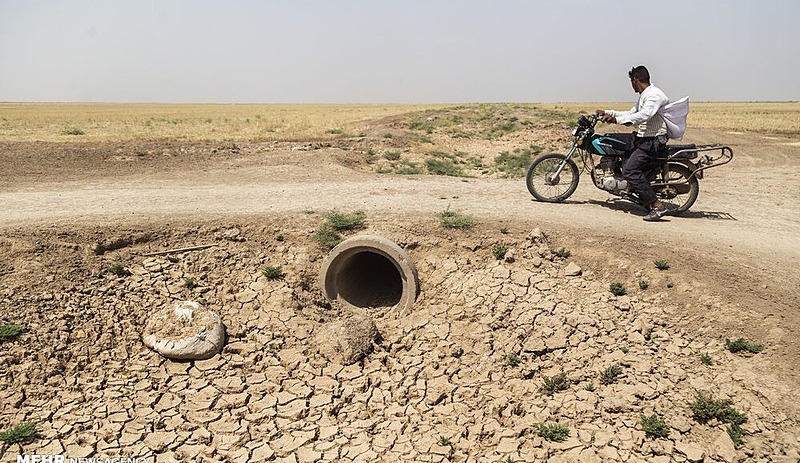Dams in Turkey have vastly reduced the flow of the Tigris and Euphrates rivers, resulting in a grave water stress in Iraq as the villagers all around the country count on digging wells as a last resort, AFP reported.
Iraq, with a population of 42 million, is seeing a race to the bottom for the precious groundwater while the country endures its worst drought since 1930.
The United Nations says that Iraq is one of the world’s five countries most impacted by key effects of the climate crisis.
Villagers who used to grow wheat and rice in the southern province of Najaf turned to products allowed by precious water such as dill, onions and radishes.
Fifty year old villager Jabar al-Fatlawi was one of the villagers in Najaf who paid local authorities to dig a well “to help him keep alive at least his date palms and livestock,” he told AFP.
His well is one of hundreds recently drilled in Iraq — at ever greater depth as the groundwater table below keeps dropping.
Fatlawi said he had once dug his own, small-scale well, before the government declared it illegal.
Experts say the short-term solution for farmers like Fatlawi exacerbates a long-term problem as frantic competition heats up for ever more scarce water.
“Before, we used to dig 50 meters and we had water. Now we have to go down more than 100 meters,” said Hussein Badiwi, another southern farmer.
The Sawa Lake in the south, a pilgrimage site, this year vanished for the first time in recorded history as some 1,000 illegal wells had sucked away the water table below.
In a country where one in five people work in agriculture, water shortages have destroyed livelihoods and driven a rural exodus into crowded cities, heightening social tensions.
Anger has flared at a government seen as incompetent and corrupt, and sporadic protests have broken out in the south demanding Baghdad pressure Turkey to release more water from its dams.
To tackle the crisis, authorities have shuttered hundreds of illegal wells, but they have also drilled some 500 new ones in this year’s first half, ahead of what the ministry predicts will be “another year of drought” in 2023.
A United Nations agency has welcomed Iraq’s new regulations, but also suggested water meters on wells and “a pricing system to limit groundwater use”.
Source. Gerçek News



